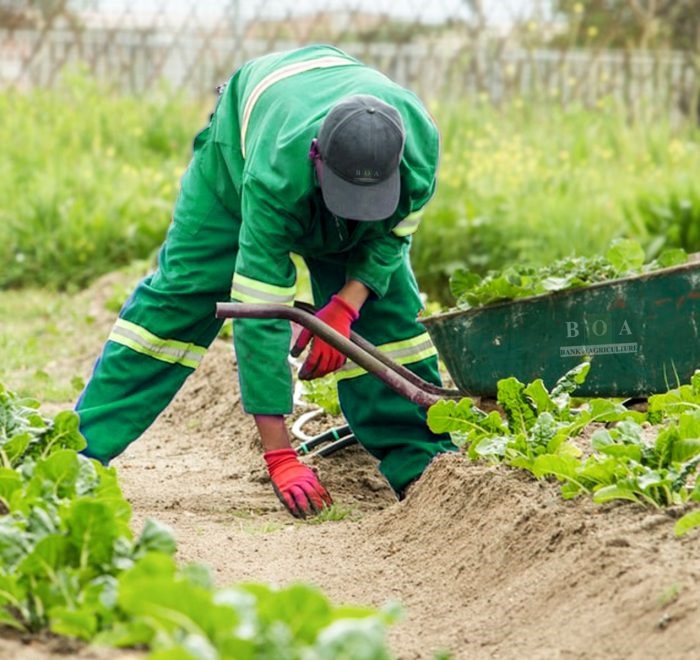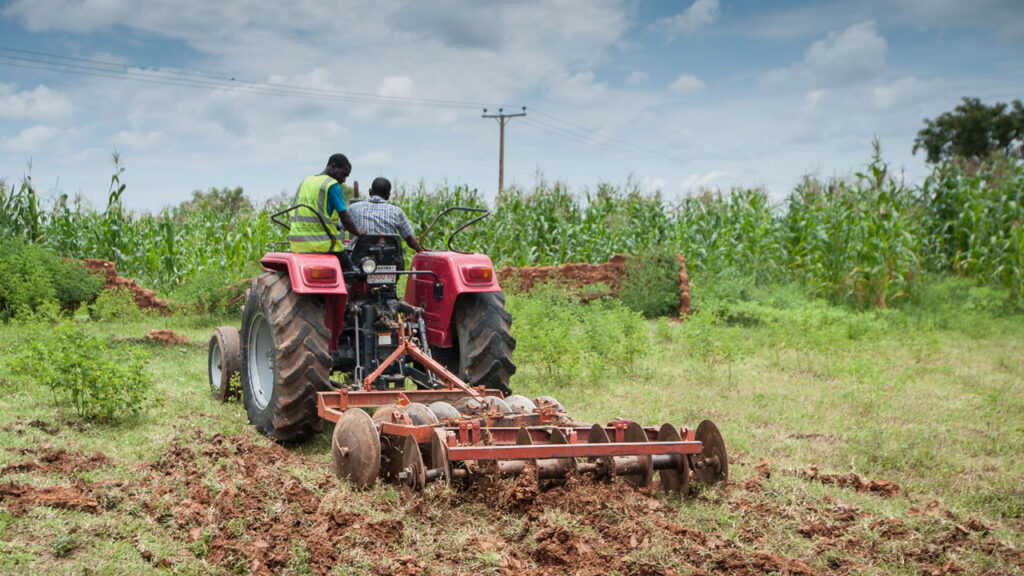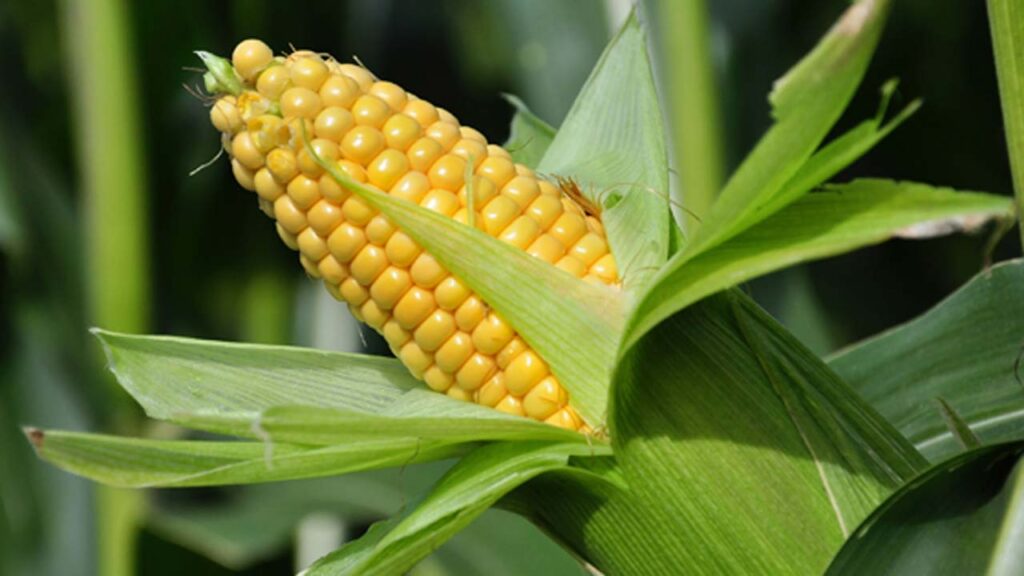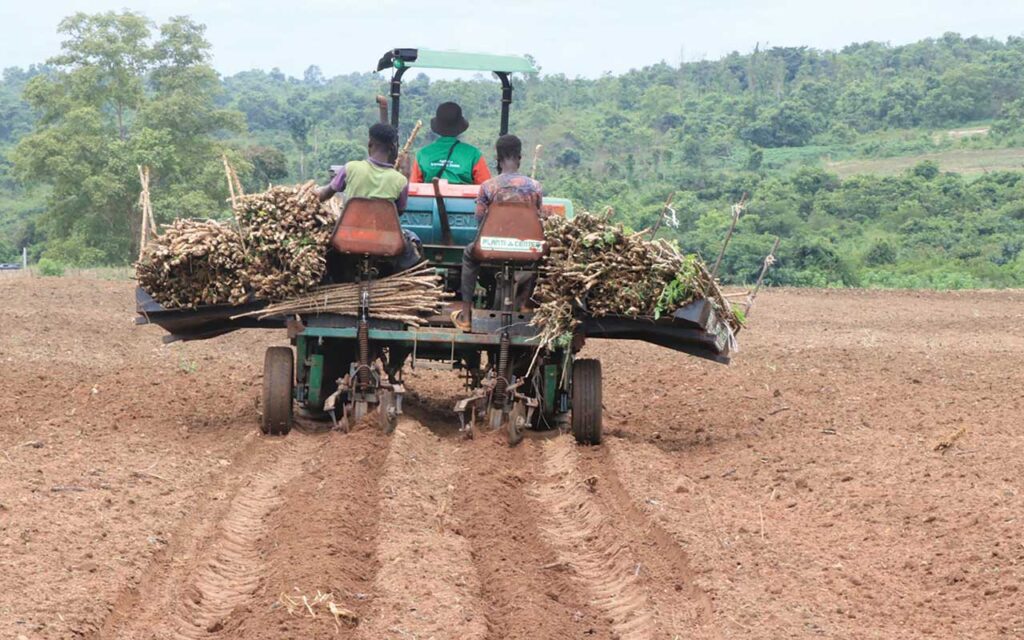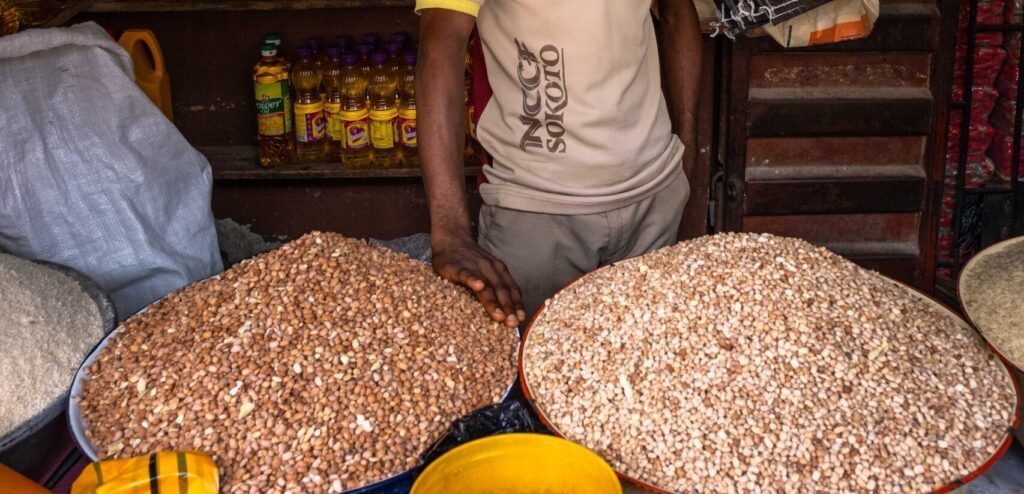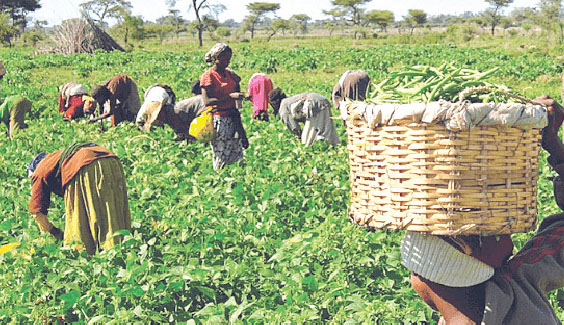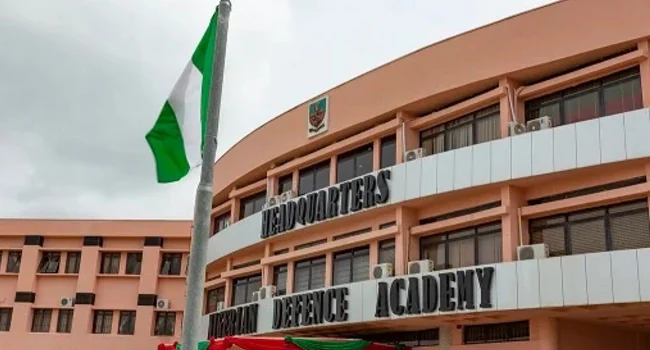 In the last five years, the Bank of Agriculture (BOA), saddled with the provision of agricultural credit to support all agricultural value chain activities in the country, has been relegated to the background. No doubt, the stagnation is partly responsible for the current food production woes starring the country in the face. In this report, GBENGA AKINFENWA examines the state of affairs in the bank, citing analysts who blamed its failures on poor capitalisation, poor governance structure and the usurping of its functions by the Central Bank of Nigeria (CBN) in recent years.
In the last five years, the Bank of Agriculture (BOA), saddled with the provision of agricultural credit to support all agricultural value chain activities in the country, has been relegated to the background. No doubt, the stagnation is partly responsible for the current food production woes starring the country in the face. In this report, GBENGA AKINFENWA examines the state of affairs in the bank, citing analysts who blamed its failures on poor capitalisation, poor governance structure and the usurping of its functions by the Central Bank of Nigeria (CBN) in recent years.
• Stakeholders Blame Current Food Crisis On Its Failures
• Tackle CBN For Usurping Bank’s Functions
• FG Must Recapitalise, Re-jig BOA To Enable It Deliver On Its Mandates, Say Yusuf, Others
The Nigerian agricultural landscape has witnessed significant challenges over the years, leading to a sharp decline in its productivity and contribution to the country’s economy.
Some of the key factors contributing to this retrogression include lack of investment,soil degradation and desertification, climate change, inefficient irrigation systems, dependence on imported inputs, limited access to markets, aging farmer population and insecurity, among others.
To address the lingering challenges, successive administrations initiated various programmes and policies aimed at revitalising the sector. The interventions include, among others, the Agricultural Transformation Agenda, the National Agricultural Technology and Innovation Policy and the Anchor Borrowers’ Programme (ABP)initiated by the immediate past administration. But the challenges are not abating.
Before this period, the BOA was established to give financial and other support to farmers to develop the agric sector. In 1972 to be precise, the bank was incorporated as Nigerian Agricultural Bank (NAB) and became operational in 1973. In 1978, it was changed to Nigerian Agricultural andCooperative Bank (NACB) Limited to reflect a broader mandate that made it the largest agricultural financial institution in the country. In 2010when it was rebranded, it adopted the new name –Bank of Agriculture (BOA) Limited, as part of its institutional transformation programme.
The BOA is a development finance institution in Nigeria, designed to provide financial services and support to the agricultural sector with a focus on rural development and food security. Available reports indicated that BOA has over the years succeeded in providing agricultural financing to numerous agricultural projects and farmers across Nigeria, supporting the growth of the sector.
Other successes recorded by the bank include job creation, agricultural development, rural development, capacity building, agricultural value chain support, partnership and collaboration, digitalisation, financial inclusion and contribution to food security and self-sufficiency efforts.
However, irrespective of whatever achievements the bank has recorded over the years, it has practically become ‘near moribund’ in the last few years. This became more pronounced in the last five years when the Central Bank of Nigeria (CBN) under its former governor, Godwin Emefiele, took over its responsibilities.
With its array of objectives, the bank’s non-performance has had several negative impacts on the country’s agricultural sector, one of which is the current food crisis in the country.
Stakeholders in the sector said the near moribund state of the bank has denied farmers and agricultural businesses access to credit and also hindered their ability to invest in their operations.
It was learnt that BOA’s laxityis one of the factors aiding reduced agricultural productivity, as inadequate funding and support have led to decreased productivity and output.
A farmer, Mr. Seye Adeogun, said: “The bank’s non-performance has contributed to poverty and unemployment in rural areas, as agricultural activities are crucial for livelihoods.It is responsible for the food shortages and increased import dependence. It has hindered the growth of agribusinesses, preventing farmers from expanding and creating jobs.It has restricted farmers’ ability to adopt modern technologies and mechanisation, reducing efficiency and productivity.
“The ‘absence’ of the bank is responsible for increased post-harvest losses, decreased export earnings, reduced government revenue and the negative impact on the economy. The country’s current economic challenges, including inflation, currency fluctuations and Gross Domestic Products (GDP) stagnation can be attributed to the non-performance of this bank.”
He regretted that the negative impacts have far-reaching consequences for Nigeria’s agricultural sector, economy and citizens, emphasising the need for urgent reforms and revitalisation of the bank.
Unfortunately, the smallholder farmers, which account for 90 per cent of the country’s agricultural produce, with 98 per cent of food consumed in Nigerian homes being produced by them, are mostly bearing the brunt of the bank’s inactivity.
 Reports have it that more than 80 per cent of the country’s farmers are smallholder farmers, with women making up 70 per cent of them. They are estimated to be around 38 million in number, which is 20 per cent of the country’s population.A significant number of them raise livestock in addition to growing crops.
Reports have it that more than 80 per cent of the country’s farmers are smallholder farmers, with women making up 70 per cent of them. They are estimated to be around 38 million in number, which is 20 per cent of the country’s population.A significant number of them raise livestock in addition to growing crops.
The smallholder farmers are considered to be incredibly resourceful and resilient, and are able to generate a substantial crop yield despite using traditional farming methods. They are responsible for producing the majority of the country’s staples, providing employment for millions of people and helping to drive the country’s agricultural sector.
But despite their contributions, 72 per cent of them live below the poverty line due to lack of access to finance and other support, which should have been readily made available if the BOA is active.
The Guardian learnt from stakeholders that the billions of naira released to farmers by the administration of former president Muhammadu Buhari under the Anchor Borrowers Scheme – an agricultural financing initiative launched by the CBN in 2015, would have had a great impact on the sector if the loans actually got to smallholder farmers.
While the programme reportedly achieved some successes, there were also challenges and failures, which cast serious aspersions on the initiative. Some of the issues testing the integrity of the initiative include favouritism, default on loan repayment by farmers, inadequate funding and disbursement of funds, inefficient distribution of inputs and resources, limited access to credit for smallholder farmers, high interest rates on loans, inadequate monitoring and evaluation of the programme and corruption and mismanagement of the funds.
Expectedly, many had expected the BOA to be at the forefront of this scheme, since it’s in line with its mandate. But the CBN single-handedly carried out the distribution of the loans to the farmers.
With the apparent failure of the initiative, stakeholders have been asking endlessly: Why is the CBN taking over the roles of the BOA?
However,The Guardian learnt that CBN, under Emefiele, did not directly take over the functions of the BOA. It was gathered that in 2019, the CBN and the Federal Ministry of Finance announced a plan to recapitalise the BOA, which has been struggling financially.
As part of the plan, the CBN injected N250 billion (approximately $687 million USD) into the BOA to boost its capital base and enhance its ability to provide financing to the agricultural sector. This investment effectively made the CBN a majority shareholder in the BOA.
Since then, the CBN has played a significant role in guiding the BOA’s operations and strategy with the goal of supporting the Federal Government’s agricultural development initiatives. This includes providing financing for farmers, agricultural businesses and other stakeholders in the sector.
Industry analysts told The Guardian that that was the genesis of the challenges currently facing the BOA, as the bank has literally been rendered moribund while its mandate is being executed by the CBN.
A reliable source disclosed that though the BOA still operates as an independent entity, with its own management and board of directors, the CBN’s involvement,though targeted at helping it strengthen its financial position and enhance its ability to support Nigeria’s agricultural sector, has actually achieved the reverse.
An economist, Dr. Muda Yusuf, who is the Chief Executive Officer, Centre for the Promotion of Private Enterprise (CPPE), regretted that the bank has been completely relegated to the background.
He said: “The BOA still exists but it has not been delivering any impact. I am not sure they are giving any loans. Infact, many of us didn’t hear about them until their managing director was kidnapped during the train attack of 2022, when we heard that he was the first person to be released after paying some ransom. But the important thing is that the bank has been completely relegated.
“All through the previous administration, nothing was happening there. They still have offices and staff drawing salaries, but nothing is happening there. All the issues surrounding agric finance were practically taken over by the CBN; so nothing was happening. Some people said maybe because the management was poor, but if the management wasn’t good, can’t the Federal Government change the management?
“That is what created all these problems for the CBN. They now took over basically everything about agric financing. For us, it is not a good development because the BOA has a major role to play. If an institution is not well managed, that is not an excuse. To now throw the baby away with the bath water is not the best.”
Yusuf, who is the immediate past Director General of the Lagos Chamber of Commerce and Industry (LCCI), stressed the need for the Federal Government to re-jig the management of the bank if necessary to enable it deliver onits mandate.
He lamented that both the BOA and the Nigerian Agricultural Insurance Corporation (NAIC) were not doing anything and yet the Federal Government is talking about revamping agriculture.
“So, the government should prioritise the revitalisation of the BOA and the agric insurance institution. If the CBN governor says that you are not directly involved in agric financing, in that case, the responsibility has to be fully taken over by the BOA. But they need to recapitalise; the management needs to be re-jigged so that they can be more relevant in agric financing.
“You cannot finance agric using commercial banks. Do you know the interest rate of these banks now? It’s about 30 per cent! Can you use that to finance agric? How much do you want to make to pay an interest rate of 30 per cent? If we are serious about agriculture, we need to prioritise the issue of agric financing and let the BOA take the lead,” he added.
Yusuf noted that the CBN is not cut out to function in agric financing, saying that is why many of the facilities have gone bad.
He added: “That is not their core function and that created a lot of problems for the management; they are under one form of probe currently or the other. There is a default inalmost 70 per cent or more of these intervention funds under agriculture; they can’t recover the money.
“So, the absence of the BOA has not been good and the attempt by the CBN to take over their roles has not been particularly successful as well. It is something that can be fixed and I think it must be done urgently.
“They need to have competent people managing the bank; that’s the starting point because when you compare the Bank of Industry (BOI) with the BOA, it’s a whole world of difference in terms of the quality of management and the delivery of mandates. So, the management must be right.
“Secondly, there is the need to modernise our agriculture. The agric we are practicing in Nigeria depends on hoes and cutlasses; we need to move away from that. We need to attract the younger generation. We need to use more technologies in agriculture and there are people who are ready to do that. We need to support landscape and mechanised agriculture.
“So, mechanisation, leveraging technology in agriculture, encouraging the younger generation and addressing the entire value chain are very important. Right from the input to the cultivation, processing, marketing, transportation, storage – all the value chains are very important and can create a lot of jobs in addition to ensuring food security.”
The National President, Association of Small Business Owners of Nigeria (ASBON), Dr. Femi Egbesola, said the problem is due to myriads of challenges facing the bank over the years.
“BOA has been bedeviled with myriads of challenges over the years. Some of these are lack of right banking structure, inadequate capital or near absence of support from the government, lack of quality human capital to run the operations of the bank, misplaced priority as many non-farmers were initial loan beneficiaries, government bureaucracy, political interference, frequent change of chief executive officers, the absence of a governing board, non-appointment of executive directors and a huge bad loans profile.
“This has negatively impacted our agricultural development. Farmers still remain predominantly manual and micro, due to lack of funds to grow and upscale with modern tools and technology. This has discouraged many from venturing into farming business, which ought to be the major employer of labour in the country.
“The bank’s inactivity has led to lack of adequate food supplies, being one of the factors responsible for the extremely high food inflation rate at the moment, inability to export agricultural products that would have boosted our foreign earnings and improved or strengthened our naira,” Egbesola said.
He noted that the key role of BOA on the financing and up-scaling of the agricultural sector and development is very germane, adding that for Nigeria to truly and fully revamp the sector, the bank must be revamped.
“BOA is technically insolvent, and in fact, bankrupt. However, with right leadership, good strategy, and above all, government support, it is certainly not beyond redemption. The bank needs to be recapitalised with the private sector owning the majority of its shares and being at the helm of affairs of running the bank.
“If the bank is set on the right foot, many international support organisations will be ready and willing to fund and even give the bank grants that will go a long way to stimulate the agric sector and place it in its rightful place.”
The Chief Executive Officer, Green Sahara Farms, Plateau State, Suleiman Dikwa, said the moribund state of the bank was due to the fact that it mitigates corruption.
“The bank was abandoned because it is the only bank that deals directly with the farmer, which mitigates corruption.
“It has a retail structure and can deal with the farmer directly, while other agencies require third parties and allow for diversions. The bank reduces the diversion of resources to indirect applications such as overheads and others,” Dikwa noted.
He said the idleness of the bank over the years has denied real farmers direct and workable interventions, noting that if the bank has been functional, farmers don’t have any business approaching other agencies or commercial banks for financial support.
“The BOA can still be used to maximise the potential of the agric sector and this can happen when we create usable financial products through the BOI by collapsing competing agencies duplicating its duties; then we would have an impactful agency,” he said.
A Senior Officer at the BOA’s head office in Kaduna, who identified herself simply as Mrs. Folorunso, told The Guardian that the bank is still functional and operating within the scope of its mandates.
When asked why much has not been heard about their activities lately, she explained that since the headquarters has been moved to Kaduna, the bank operates from there.

